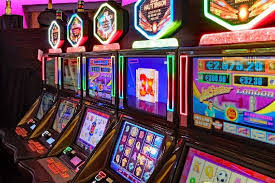
When it comes to playing slot machines, many players are eager to spin the reels in hopes of hitting a big win. However, one crucial aspect of slot gaming often gets overlooked: bankroll management. Without a solid plan for managing your money, it’s easy to get carried away and spend more than you intended, leaving you frustrated or empty-handed.
Whether you’re a seasoned player or a newcomer to the world of slots, understanding how to manage your bankroll effectively is essential for having a fun and sustainable gaming experience. In this blog, we’ll share some practical tips to help you manage your bankroll while playing slot machines.
1. Set a Budget Before You Play
The first step in managing your bankroll is to set a budget. Decide in advance how much money you are willing to spend on slot games and stick to it. This amount should be money that you can afford to lose without impacting your daily life or finances.
To set a reasonable budget, ask yourself:
- How much can I afford to lose today without causing financial stress?
- Am I prepared to walk away if I lose the set amount?
Setting limits on your spending helps prevent impulsive decisions and ensures that you’re always gambling responsibly.
2. Choose the Right Slot Machines for Your Budget
Not all slot machines are created equal. Some machines have higher minimum bets, while others allow you to play with lower stakes. If you’re working with a smaller bankroll, look for machines with low minimum bet amounts.
Many online casinos offer a wide variety of slots, from penny slots to high-stakes machines. If your budget is modest, playing penny slots can allow you to enjoy the game for longer periods without risking too much of your bankroll at once.
3. Understand the Payout Structure and Volatility
Each slot machine has its own payout structure and volatility. Payout structure refers to how often and how much a machine pays out, while volatility refers to the level of risk involved in playing the machine.
- Low-volatility slots pay out more frequently, but the payouts tend to be smaller.
- High-volatility slots pay out less frequently, but when they do, the payouts are often much larger.
When choosing a slot machine, consider how much risk you’re willing to take. If you have a smaller bankroll, opting for low-volatility slots can help you play longer while still having a chance of winning. High-volatility slots, on the other hand, may offer bigger wins, but they can also quickly deplete your bankroll if luck isn’t on your side.
4. Set Win and Loss Limits
While it’s important to set a budget for how much you’re willing to lose, it’s also wise to set a win limit. This means deciding in advance how much profit you want to make before you walk away from the game.
For example, if you start with a $100 bankroll and your win limit is 50%, you should consider stopping once you reach $150. This helps you lock in your profits and prevents you from losing them in the long run.
Likewise, setting a loss limit is equally important. If you lose a certain percentage of your bankroll, consider walking away for the day. This ensures that you don’t get caught up in chasing losses, which can lead to more significant financial trouble.
5. Avoid Chasing Losses
It’s easy to get frustrated when you hit a losing streak, but chasing losses is one of the most dangerous habits in gambling. This occurs when players continue to play in an attempt to win back money they’ve already lost. Chasing losses can quickly spiral out of control and deplete your bankroll.
If you find yourself on a losing streak, it’s best to take a break or stop playing altogether. There will always be another day to try your luck, and stepping away from the game can help you reset your mindset.
6. Take Advantage of Casino Bonuses
Online casinos often offer bonuses and promotions that can help extend your bankroll. Whether it’s a welcome bonus, free spins, or loyalty rewards, using these bonuses can give you extra playtime without risking your own money.
Be sure to read the terms and conditions of these offers, especially the wagering requirements, so you understand how the bonuses work. However, using bonuses strategically can give you more opportunities to win while managing your bankroll effectively.
7. Know When to Walk Away
One of the most important rules of bankroll management is knowing when to walk away. Whether you’re winning or losing, it’s crucial to know when to end your gaming session.
- If you’re ahead, consider cashing out some of your winnings to lock in a profit.
- If you’re losing, it may be time to call it a day and avoid digging yourself deeper into a financial hole.
There’s no shame in walking away from a game, especially when you’ve set limits for yourself. The goal of gambling should always be entertainment, and walking away when you’re done ensures you enjoy your time without negative consequences.
8. Use a Bankroll Management App or Spreadsheet
For those who like to keep a closer eye on their finances, using a bankroll management app or a simple spreadsheet can be a helpful tool. By tracking your wins, losses, and overall balance, you can gain a clearer picture of how much you’re spending and whether your bankroll is in a healthy range.
Many online casinos also offer account features that allow you to track your betting history and spending. Utilizing these tools can help you stay within your set limits and make more informed decisions about your gameplay.
Conclusion
Proper bankroll management is key to enjoying slot machine games while minimizing financial risk. By setting a budget, choosing the right machines, setting win/loss limits, and avoiding chasing losses, you can have a much more sustainable and enjoyable gaming experience. Remember that slot machines are games of chance, and while there’s always a chance for big wins, managing your bankroll ensures that you play responsibly and keep the fun alive for the long term.



